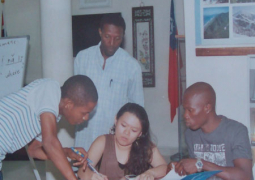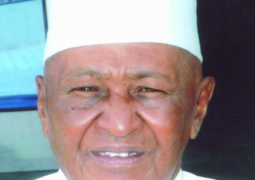
In a press release dated 1 July and sent to The Point, NAATIP-The Gambiawhich is under the Ministry of Justice in Banjul, announced that it was created in 2007 by an Act of the National Assembly, but started operations proper on 1st December 2011 with a skeletal staff.
NAATIP has since “made remarkable progress in terms of operations and actions, and presently has adequate staff on the ground; a well-developed plan of action; and a fully functioning board of directors”, the release added.
NAATIP has recently released its annual report, and widely distributed this document to all stakeholders including the ECOWAS Commission’s department responsible for TIP matters in the region, the release further stated. It went on to highlight the following:
“The Gambia is second ECOWAS member state to establish a Trafficking in Persons Agency, with Nigeria being the first and Niger the third. Thus it is worthy to note that in the entire West African sub-region, there are only theee three Human Trafficking Agencies.
“In 2007, the Gambia police force and other stakeholders sensitized and created awareness on the ills of street begging, and policing the situation to deter the practice, especially of young school-going age children. It is worth reporting that today there are no “Almoudos” in the streets of Banjul and its surroundings, as opposed to what currently exists in other countries in the sub region.
“There have been a series of investigated cased of human trafficking during the course of the year. Prosecutions can only take place if there is sufficient evidence in the investigatory report and legal opinion.
“Where cases are weak and show no link of exploitation to the suspected victims, and when witnesses do not come forward to give evidence as required, the agency will be unable to prosecute cases.
“The effectiveness of Government in suppressing human trafficking is not dependent on the number of cases prosecuted or the number of convictions secured; rather it is wholly dependent on its ability to prevent the occurrence of the offences, and this can only be done by raising awareness on the ills of human trafficking.
“As recently as last week, the 16th day of June 2014, NAATIP conducted a sensitization walk to the Banjul Market and the Gambia’s border with the south of Senegal, which saw the participation of the minister of Justice, chief justice and other high-level government officials, security operatives, civil society organizations and the local populace, as well as officials of the Senegalese National Committee Against Trafficking in Persons, and this clearly shows that The Gambia’s actions to inform, educate, prevent and fight against TIP within and away from our borders are positively reflected.
“The Government of the Gambia in further compliance with the Palermo Protocol, and in complementing the efforts of the United Nations in its efforts to eradicate this modern day form of slavery, signed a Memorandum of Understanding with the National Committee Against Trafficking in Persons of the Republic of Senegal to fight Cross-Border Trafficking Crimes between the two countries.
“Furthermore, the Government of the Gambia through its National Agency Against Trafficking in Persons (NAATIP) has taken bold steps to investigate some reported cases of human trafficking across its borders this year, specifically in Lebanon.
“This, for example, is a clear manifestation of demonstrated willingness to protect victims of human trafficking of Gambian origin presently reported in Lebanon.
“The Agency, presently, is vigorously investigating all reported suspected cases of human trafficking in the country, and will prosecute anybody against whom there is overwhelming evidence, in line with NAATIP’s mandate as set out in the 2007 Trafficking in Persons Act.
“As a country, The Gambia has been working at all levels to fight against human trafficking.
The country’s preventive measures and efforts show that The Gambia is indeed positively responding to the fight against human trafficking, and this has been internationally acknowledged.
“The Government of the Gambia will continue to pursue and join all nations in the fight and suppression of human trafficking, and call upon all partners in development and members of the public to provide support to NAATIP”.
Read Other Articles In Article (Archive)

Taiwan Culture Centre attracts more Chinese language students
Feb 14, 2013, 11:05 AM




